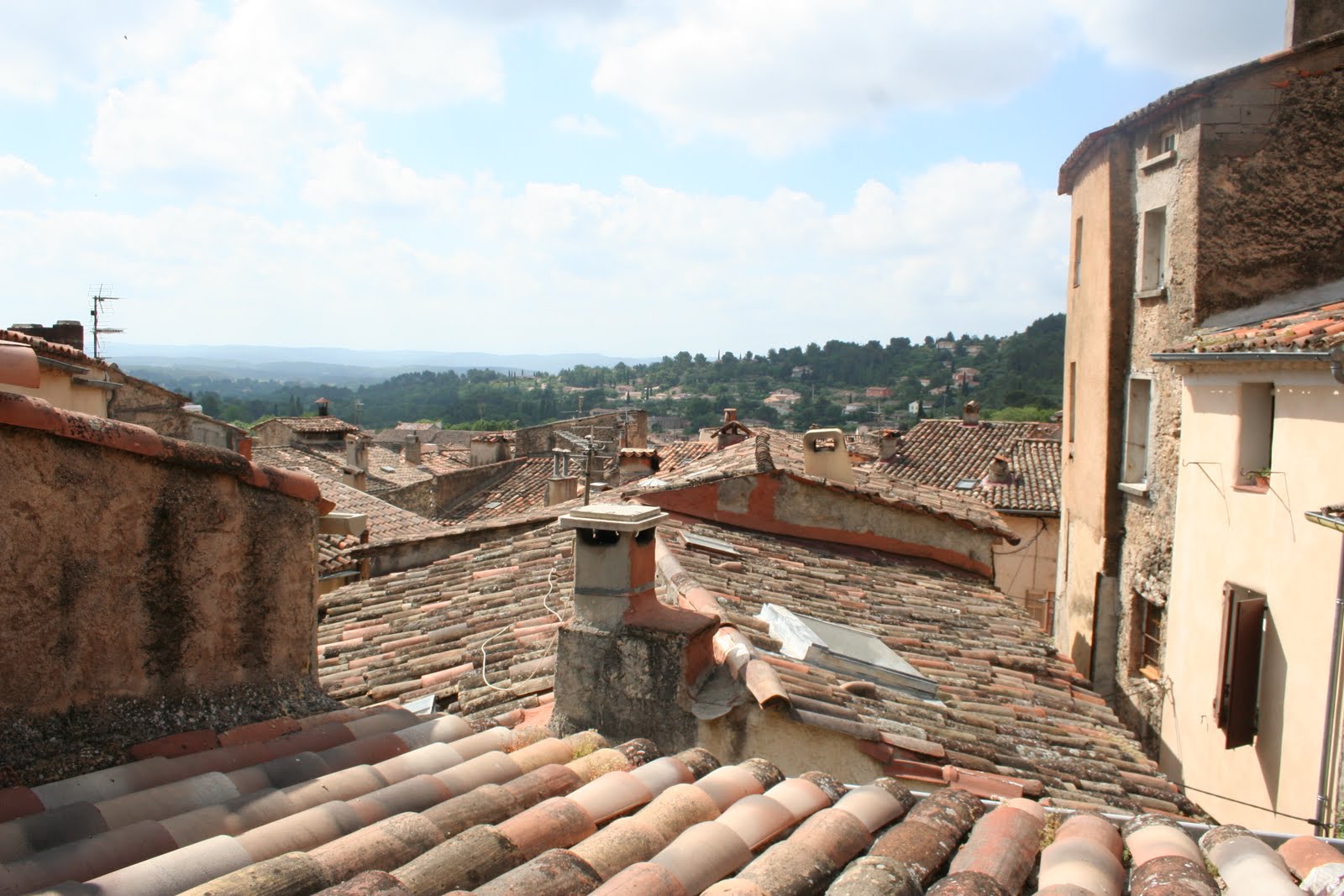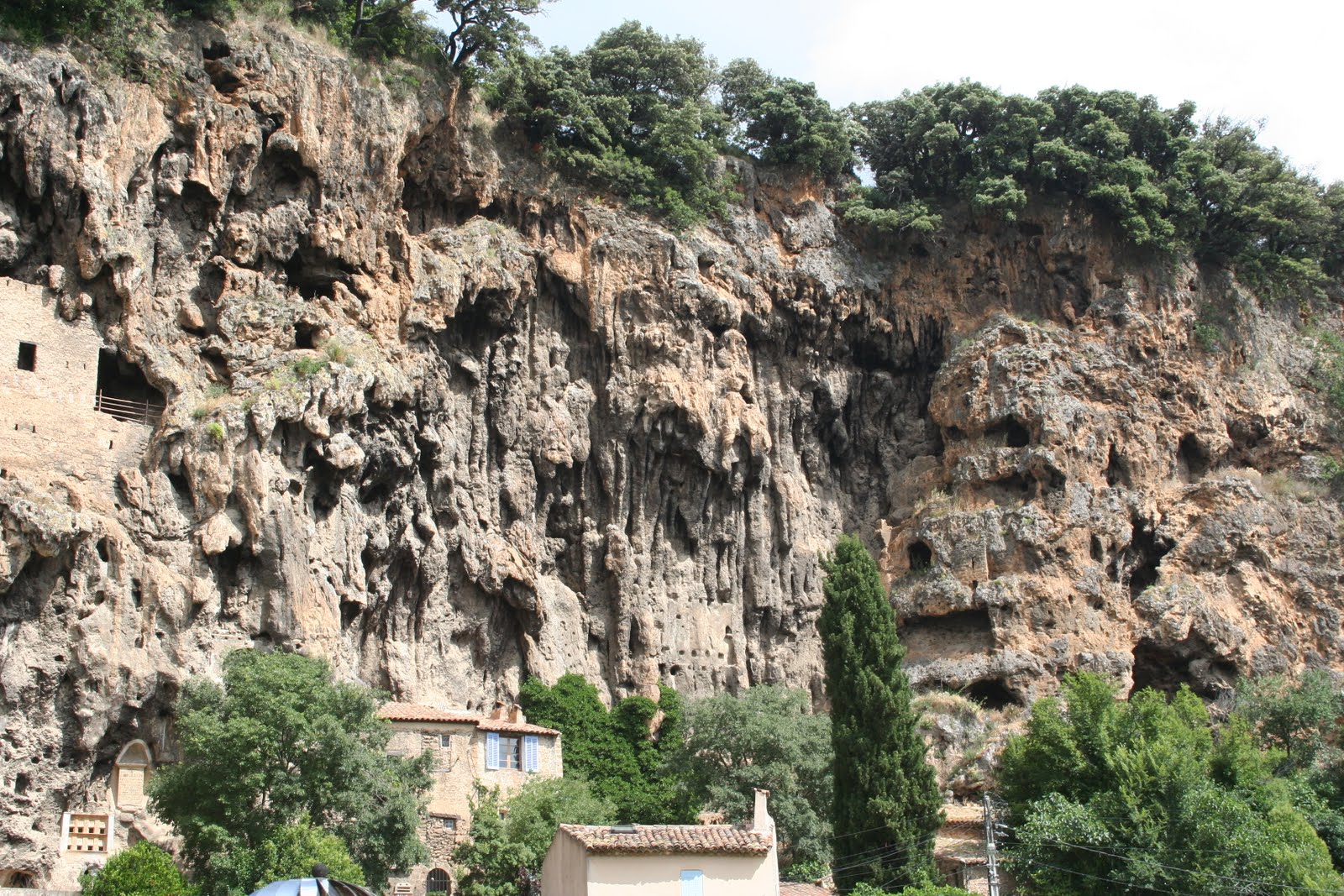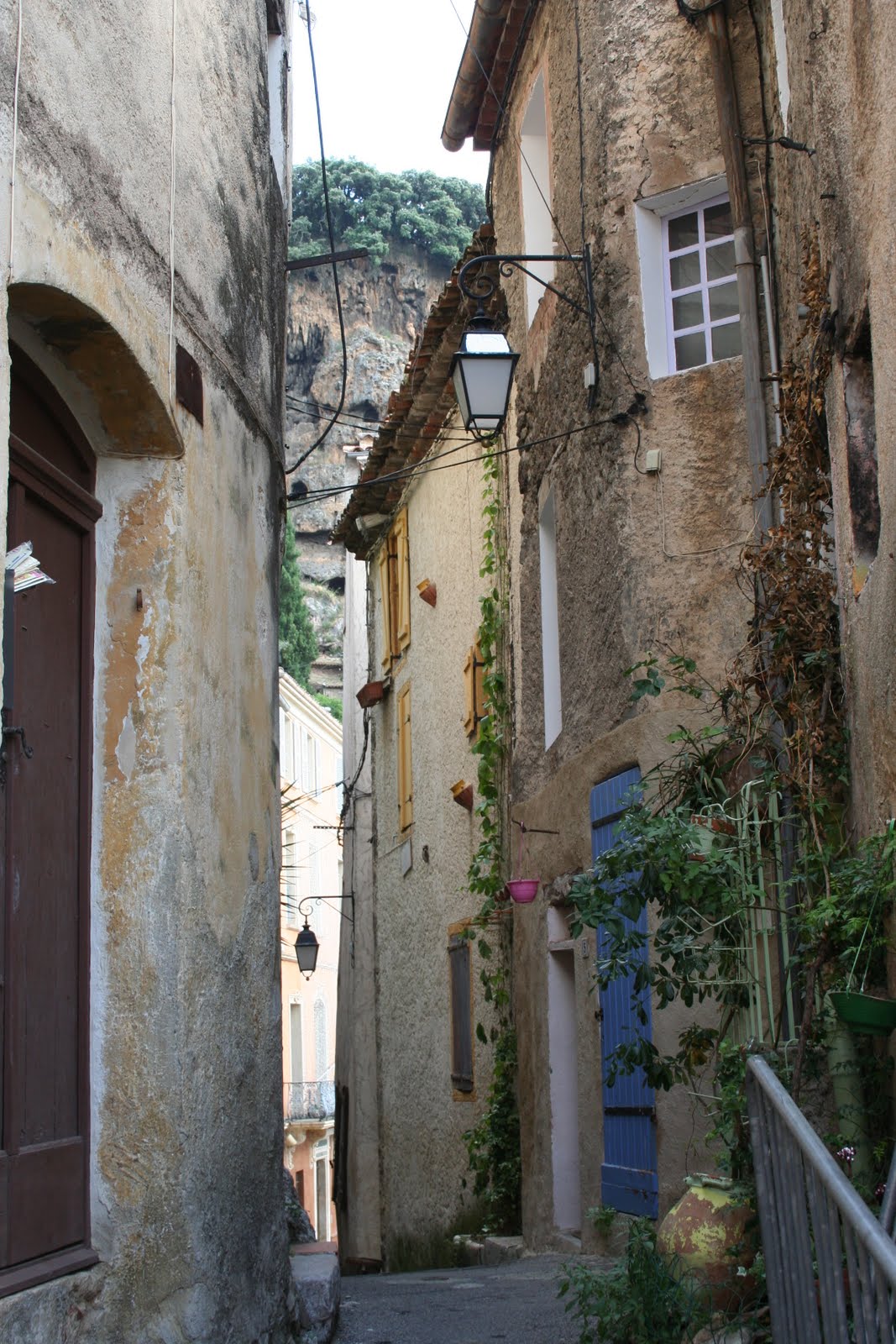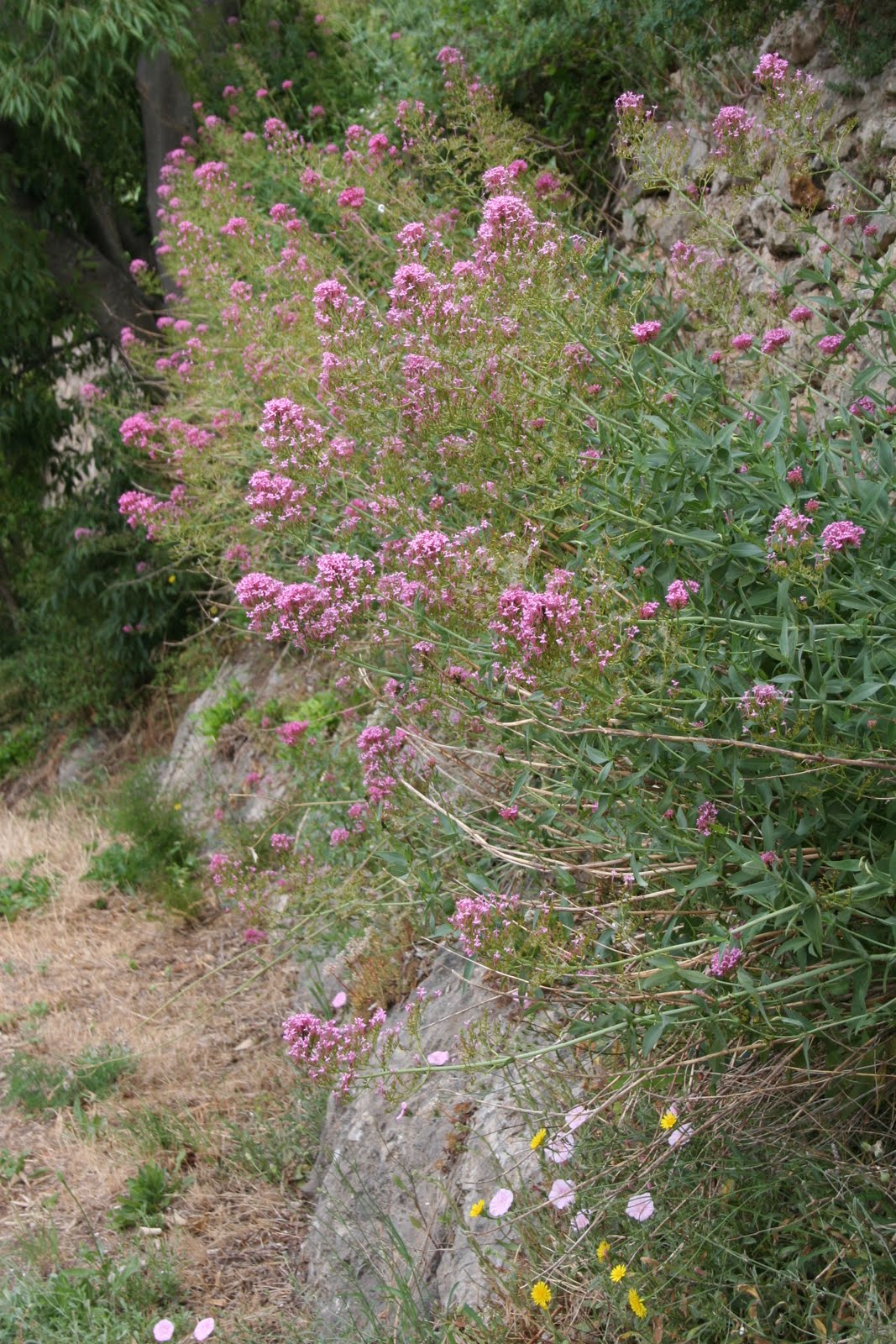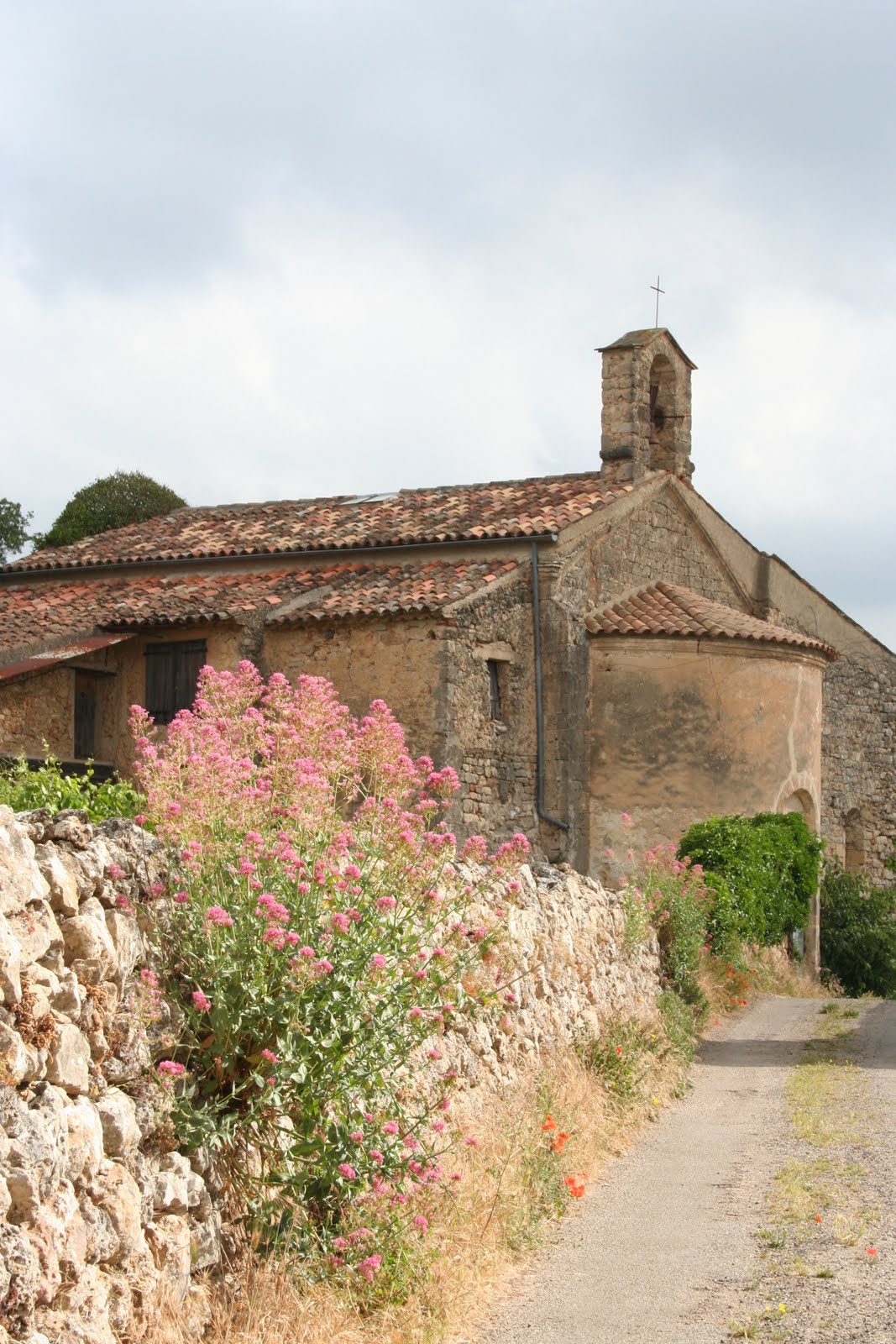Provence has a basically Mediterranean climate, one wafted by winds that give it a special character. The most notorious is the mistral (from the Provencal mistrau, or master– supposedly sent by northerners jealous of the south’s climate), rushing down from the Rhone and gushing east as far as Toulon and west to Narbonne. On average the mistral blows 100-150 days a year, nearly always in multiples of three, except when it begins at night. It is responsible for the dryness in the air and soil…. It blows so hard that it can drive people mad: an old law in Provence acquitted a murderer if it could be proved that he killed his victim while the mistral was blowing. But the mistral has its good points: it blows away the harmful miasmas and pollution from the Rhone and makes the stars radiantly clear. –Provence, by Dana Facaros and Michael Pauls
The mistral– I’m assuming that’s what this is– is whipping up the hill and down it again, occasionally slamming doors downstairs where we forget to close them or block them against closing, and occasionally making the clothes hanging out here on the line go frantically flapping about. But I’ve secured them tightly with clothes pins, and they are remaining in place.
From this vantage point on the terrace, the tiled roofs of this town step down the hill; behind me, the rise is steeper, with the last few of the rooflines part of the cliff-face. And then there’s the cliff-face itself: a steep vertical exaltation, but not terribly high. Still, it’s high enough, bearing after hundreds of years the scarred face it presumably wore when half the hill caved in, and wearing further scars from the caves and houses dug into its sides. It’s eerie and strange, and I wonder, looking at it, how the townspeople could ever become accustomed to it, ever have become accustomed to it. I wonder what, if anything, the Swiss would do when faced with a cliff-face like that. I can’t imagine the Swiss having even vocabulary for something so feral and scarred and abandoned as the face of that cliff. Perhaps they’d hang curtains.
The Swiss have the fon (sp), of course– that unpredictable and sudden and snow-melting wind– and today’s wild wind makes me think of that. But I think that even the Swiss wind is more tame than this, coming always (does it?) from one direction at a time, not whipping back and forth so that now it is coming in at the kitchen window and now going out. I don’t remember.
It’s hard not to compare this place with Switzerland, that being the only other European country we’ve lived in– if one can call the two or so weeks we have at this house living here– and so the comparisons seem to come naturally. I will at least say that I don’t remember anything in Switzerland being so old as what we’ve seen here: “Ruin on the left!” — or right, as the case may be– I’m forever calling out to the children as we’re rounding yet another bend on an impossibly narrow country road or jetting down a highway. Do the Swiss not have anything as old as this, I’m wondering– these partial walls of crumbling stone, these Romanesque churches? The Romans were there, of course, in Switzerland, but maybe the Alps made it more difficult for them to set up camp? 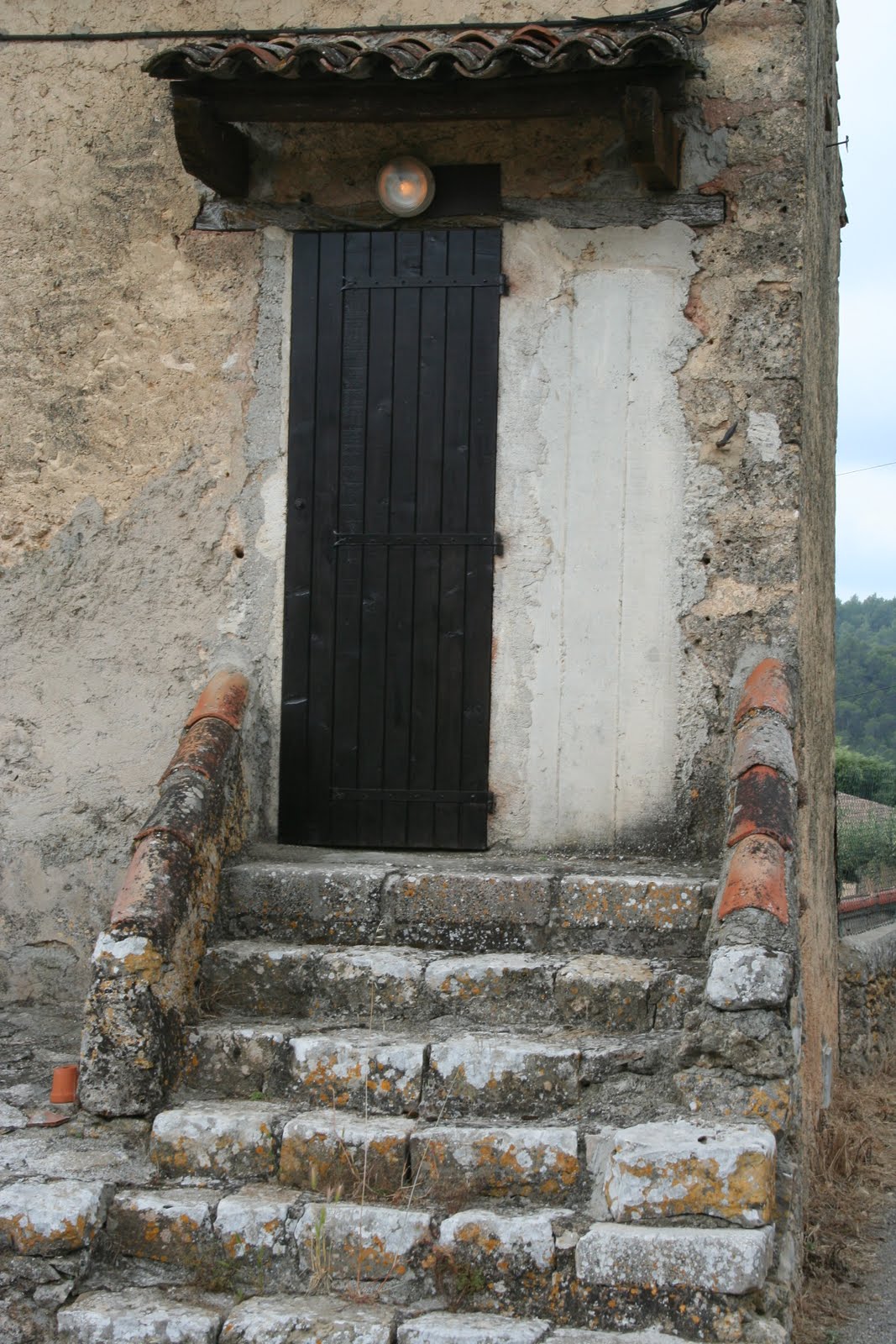
I know we saw houses in Switzerland as old as the one we’re staying in now– Swiss houses, charming, beautifully kept, with the date– 1670 or some such– over the door. Those houses looked older, to be sure, than those around them, but nothing so old as these Provencal houses, mounted tightly up against one another, ancient casements, ancient shutters, ancient doors. And nothing else around them, really. Not much, anyway, that looks new. Just towns once formed and then lived in, unquestioningly, for all the draw of something like a suburb or city somewhere else, and despite the fact that– in this case– cliffs with open eyes and mouths stand at your back.
Still, it is wonderful to be here. Wonderful. This tile-roofed town and all the others that the countryside– as we are driving– opens and then closes to view. The narrow streets and narrower alleyways, the flowerpots– and windowsills and doorways– brimming with flowers. The painted shutters and doors, distinguishing– in a block of “house”– one home from another. On the hillsides, great shrubs of yellow blooms; on the roadsides, bouquets of red poppies with tissue-thin petals and tufts of pink things– what are they?– so lovely.
From this terrace in my distant view, I do see what might be some more modern buildings, but they blend in, and around them and above them are some stands of poplars, so classically French, bending occasionally to the mistral. Also I see some of Van Gogh’s cypresses, which stand so straight and only yield their tips– so it appears– to this wild French wind. Van Gogh loved this part of France; he came here to live and then died not far from here at St. Remy back when– I am learning this– Provence was not at all the place to be. He and others, I think, helped tame it for us, somehow made its wildness seem less unsafe. Think of his Starry Night, for instance, which was painted just down the road.
And now here we are for close on two weeks. I never would have dreamed it a year ago, could only barely hope it last fall, was prematurely saddened by its apparent loss several times over the last few weeks. I’m not at all sure why I should have this, what it is in my life that constitutes deserving. Here is a brand new thing, long hoped for: the five of us away on vacation without family or friends. But France? Provence? This is newer still, wild, even. Decidedly undeserved.
I said as much to Beth before we left, during one of those days when it looked for certain like we wouldn’t go. She answered in the way she always does because she knows no other way, an answer laced inextricably with the knowledge of that Most Wild One: that we none of us deserve much of anything. Nothing good, anyway.
Swallows wheel and soar and turn in the air above the rooftops below me. This is, so I’ve observed since I’ve been here, the way they do things, mistral or no. But maybe it’s more fun in the wind.
No, it doesn’t make sense for us to be here. It is, at the very least, decidedly un-Swiss of us– with all their careful planning, all their tidiness and cleanliness and caution. This trip is undeserved, yes. Yet it is celebration– not because we are no longer in want, but in spite of it. A celebration of 40 years of life, of 20 years of marriage, a celebration because when your faith is in the Wild One, then you find you must take risks.
And we’ve known some risks in the hands of this One: the risk of staying when the going seems better, of opening when the closing seems smarter, of losing when the gaining… well, of losing. And we’ve known, too, by miracle, by grace, what it means to love when you simply don’t want to, when it isn’t at all safe, when it isn’t– is it ever?– deserved.
I am looking forward to being in Switzerland for a few days soon. It will be so good to see old friends, to revisit the places we knew and the paths we walked when we lived there 15 years ago. But I am thinking now that God has come to look to me less tidy than Switzerland. He looks, I think, more like the south of France: an inscrutable cliff face; a tempestuous wind; a persistance beyond all confidence, beyond all sustainable reason. Sometimes dirty, sometimes crumbling, sometimes neglected. And offering– even in the most unexpected places– a glimpse of brilliant stars and bouquets of sweetest flowers.

